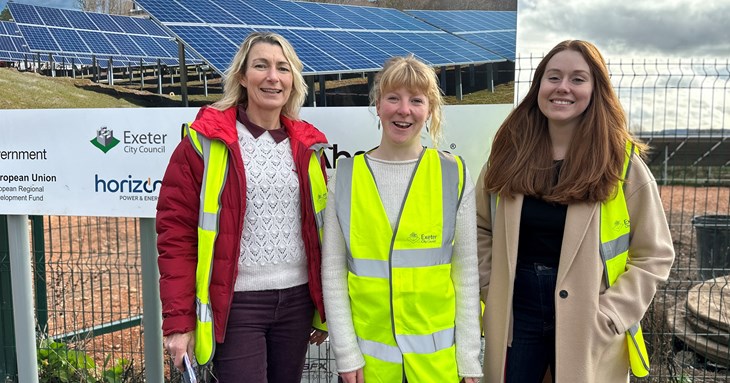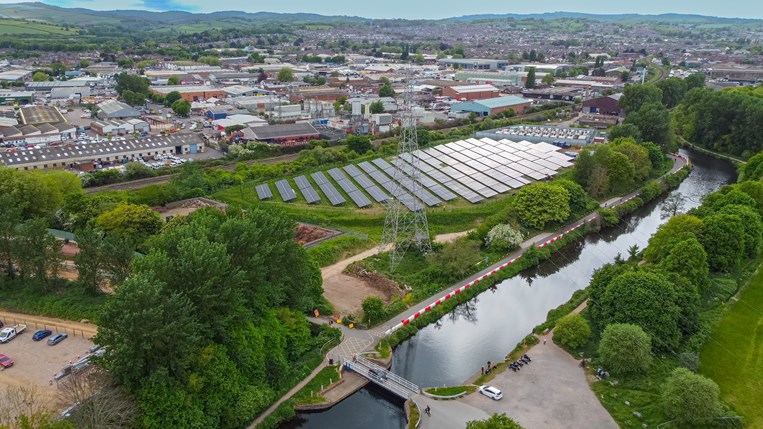Exeter’s pioneering solar farm shortlisted for a top award
Published: 17 May 2023

Exeter’s new solar farm and battery storage facility at Marsh Barton has been shortlisted for a top award.
The facility at Water Lane, which went live last year, has been shortlisted in the 2023 RTPI South West Awards for Planning Excellence 2023.
The RTPI Planning Excellence awards showcase and celebrate the best plans, people and projects, and recognise the positive contribution planning professionals make to communities.
Shortlisted in the Planning for the Natural Environment category, the Water Lane Smart Grid features 3,700 solar panels which create 1.2MW of clean, renewable energy. The substantial battery facility is capable of storing 2MW and provides flexibility between peak generation and peak usage.
A first for the region, the Smart Grid powers the city’s electric fleet of vehicles, recycling centre and offices with green energy and delivers a further step towards the City Council’s ambition of becoming Net Zero Carbon by 2030.
Part funded by the European Regional Development Fund, the facility is built on an inactive landfill site and feeds power directly to the Council’s nearby Materials Reclamation Facility.
The carbon saving is estimated to be 580 tonnes per annum, overall a 72% reduction across all sites included in the project.
As well as cutting carbon emissions the project also has the benefit of increasing energy security and providing protection against price increases, with savings helping to support Council services.

Cllr Josie Parkhouse, Lead Councillor for Climate and Ecological Crisis, said: “We are delighted to have been shortlisted for an award that recognises the collaborative approach our Labour led Council is taking to step towards being Net Zero by 2030.
“Switching to an electric fleet of vehicles and generating the electricity to power them, is a big step towards the Council being Net Carbon Zero by 2030.
“This project is a first for the South West and is leading to a significant reduction in our carbon emissions. The recent replacement of three of our diesel refuse vehicles with fully electric ones is saving 10,500 litres of diesel per year for each vehicle - a total of 35,000 litres per annum (103 tonnes of CO2 annually). That’s more than a quarter of a million litres of diesel over their eight year lifespan.”
The regional winners will be announced on 3 July and will go through to national finals which will be held in November.

